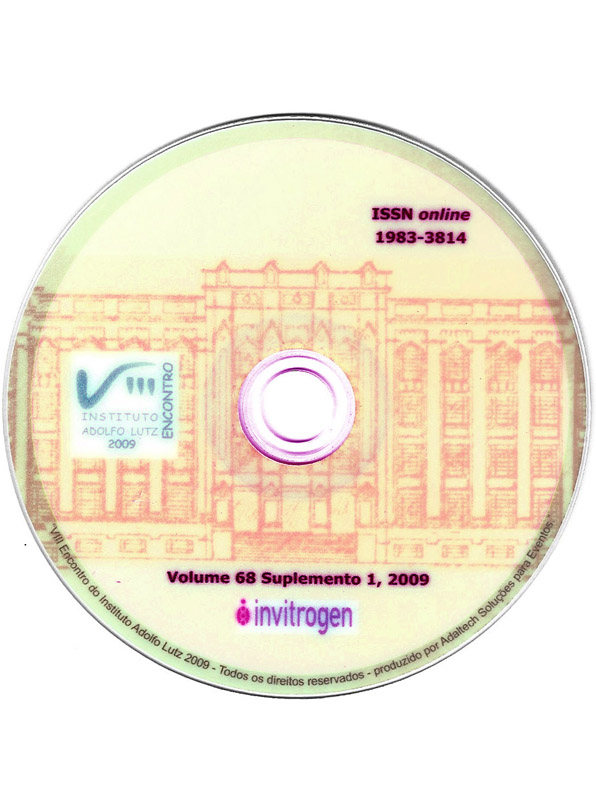Resumo
Accurate identification of Rhodococcus isolates to the species level is possible on the basis of chemotaxonomic properties. However, these techniques are excessively laborious, time-consuming, and expensive for routine use in clinical microbiology laboratories. Navas et al. identified the R. equi choE gene, a chromosomal locus encoding cholesterol oxidase, an enzyme believed to be a major virulence factor of R. equi. Mutational analysis indicated that choE is the membrane-damaging factor responsible for the typically shovel-shaped synergistic hemolysis (CAMP-like) reaction elicited by R. equi in the presence of sphingomyelinase C-producing bacteria, such as Listeria ivanovii. We aimed to evaluate the use of CAMP-like reaction as a phenotypic marker for the rapid presumptive identification of R. equi, and the PCR method for it specific identification, based on the detection of choE gene. A total of 84 Gram-positive and partially acid-fast rods isolated from sputum of tuberculosis-suspected patients, and the R. equi reference strain, ATCC 6939 were included in the study. The bacteria were routinely cultured at 37° C for 48 h, and the CAMP tests were performed on sheep blood agar plates with Mueller Hinton agar base medium, and L. ivanovii ATCC 19119 as the indicator strain. All isolates were screened by PCR in accord to Ladrón et al. The expected presence of choE was observed in 50 isolates with positive CAMP-like reaction, and in R. equi ATCC 6939. Twenty seven isolates with negative CAMP-like reaction displayed negative choE result. Five isolates originally identified as presuntive R. equi based on positive CAMP-like reaction displayed negative choE gene result, and probably belonged to other bacterial species. Our results illustrate the validity of the molecular method as a tool to identify R. equi. These assays accurately identify R. equi correctly on the basis of phenotypic characteristics.

Este trabalho está licenciado sob uma licença Creative Commons Attribution 4.0 International License.
Copyright (c) 2009 P Silva, ACB Santos, DN Sato, JO Silva, MIC Medeiros, AMM Carneiro, CQF Leite
